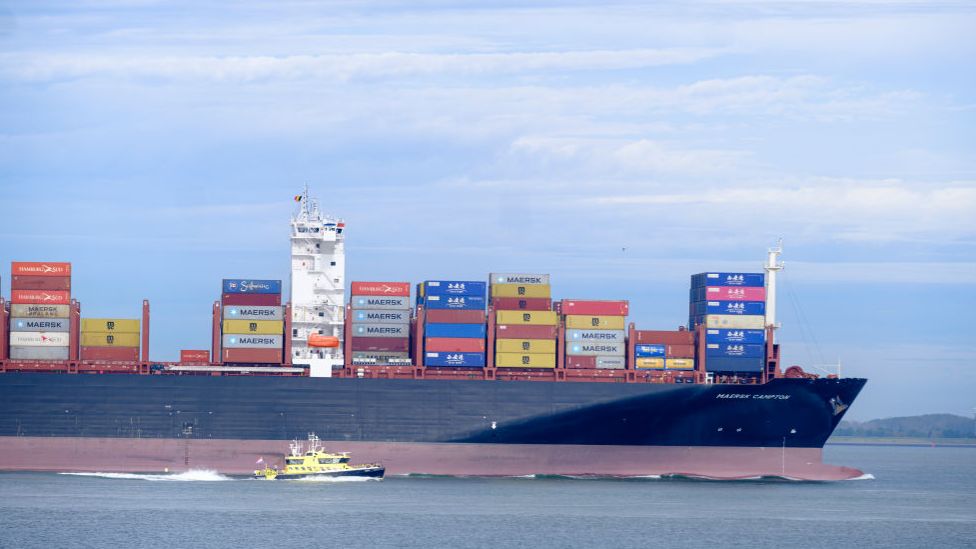-

-
-
Loading

Loading

Analysts have expressed concerns that attacks on commercial ships in the Red Sea could lead to an increase in the price of oil and other goods. Several companies have halted shipments through the route after Houthi rebels in Yemen targeted vessels. As a result, Maersk, the world's second-largest shipping line, has announced that it will reroute some of its ships around the Cape of Good Hope. In response to the disruption, the US has initiated an international naval operation to protect ships in the Red Sea. The UK, Canada, France, Bahrain, Norway, and Spain are among the countries joining this security group. The US defense secretary, Lloyd Austin, has warned that the attacks endanger innocent mariners, threaten the free flow of commerce, and violate international law. The Red Sea serves as a crucial route for oil and liquefied natural gas shipments, as well as consumer goods. BP has temporarily halted all shipments of crude through this trade route, and Shell has yet to comment on the situation. Marco Forgiona, the director general at the Institute of Export and International Trade, has stated that the alternative route around the Cape of Good Hope could result in delays of approximately two weeks. Additionally, there are increased costs for fuel and insurance, along with logistical challenges due to ships and containers being in the wrong place, potentially causing congestion at ports and further delays. The impact on global supply chains is significant. S&P Global Market Intelligence indicates that nearly 15% of goods imported into Europe, the Middle East, and North Africa are shipped from Asia and the Gulf via sea routes. This includes over 21% of refined oil and more than 13% of crude oil. An increase in oil prices can lead to higher inflation, which is currently at 4.6% in the UK, more than twice the Bank of England's 2% target. While there have been minimal changes to oil prices thus far, with a 1% rise on Monday and little change on Tuesday, the situation remains uncertain. Richard Meade, editor-in-chief of Lloyd's List, highlights the potential implications for the global supply chain if tankers continue to reroute, particularly as BP has already taken such action. Houthi rebels have declared their support for Hamas and have been targeting ships traveling to Israel using drones and rockets. However, some firms assert that their ships have no connections to Israel, which is at war with Hamas since the attacks on October 7th. Instead of using the Bab al-Mandab Strait, ships are now required to take a longer route around southern Africa via the Cape of Good Hope. Sal Mercogliano, a naval historian, acknowledges that ships are hesitant to determine the level of security they will receive. The threat of ballistic missiles poses a significant challenge as it is difficult to intercept such weaponry, and few ships possess the capability to do so. This may lead many shipping companies to avoid this route altogether.